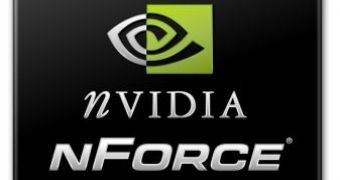Rumor has it that the new Nvidia 680i chipset does not support all the Intel's 45nm processor line. Well, things have gone official now, since the deal was given away by an EVGA forum staff member.
Nvidia's new Nforce 680i chipset seems to have some compatibility issues with the next generation of Penryn processors, just as the Nforce4 SLI had a tooth against Pentium D 820. History repeats, they say.
The Socket775 motherboards have continually required attention through endless revisions since they first saw daylight in early 2004. The most stubborn motherboard was the D975XBX, also known as "the Bad Axe", that underwent major changes for Pentium EE 955, 965, Core 2 Duo and Core 2 Quad. There is no denial that backwards compatibility was supported, but this would give the average user endless headaches and productivity loss.
The EVGA Nforce 680i motherboard is quite a loss, given the state-of-the art overclocking response and broad compatibility with major memory cards manufacturers, not to mention the advantages of working with both DDR2-800 CL3 and DDR2-1310 memory modules.
Unfortunately, all the motherboards wrapped around Nvidia's 680i chipset lack compatibility with recent processors, namely the EVGA, BFG, XFX, Galaxy, Inno3D series as well as other models manufactured by third-parties. The quad-core solution, even if accessible in terms of price, is impossible to implement if you are the unlucky owner of a 680i motherboard.
Where is all this heading to... you might wonder. There is no use in maintaining the same socket over the years if motherboard compatibility is useless. Nvidia's chipsets suffer of processor selectivity, which renders useless this alternative, while the AMD competition switches their sockets in a frenzy, and practically each major technological achievement is finalized with a motherboard replacement. There were Socket 754, 940, 939, AM2, AM2+, and now it's time for AM3. But c'est la guerre. You are still left the freedom of choice.

 14 DAY TRIAL //
14 DAY TRIAL //